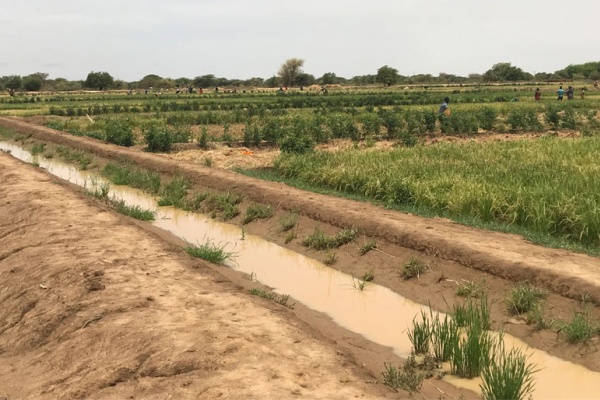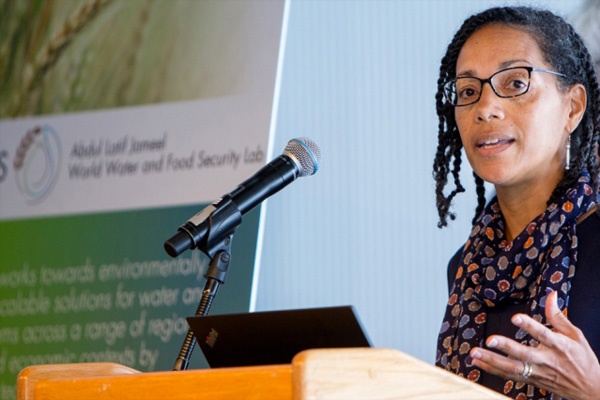Our Research The potential for private irrigation in Senegal
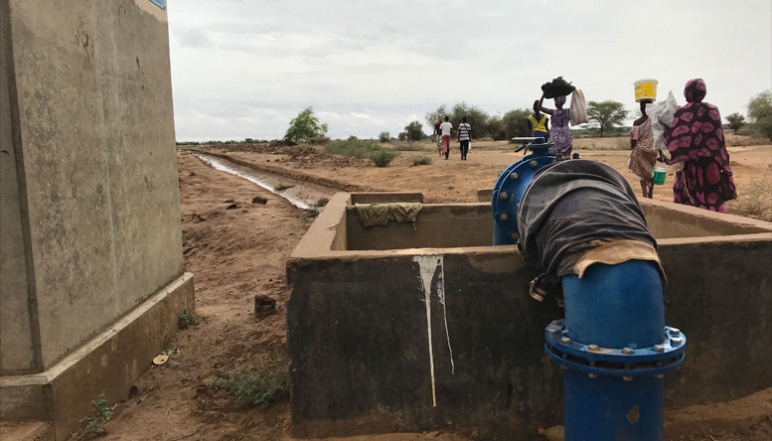
Women farmers in Podor, northern Senegal, walking past the pipe, connected to an in-river floating pump, that supplies water to their rice fields. Photo credit: Graves, Sanyal research team
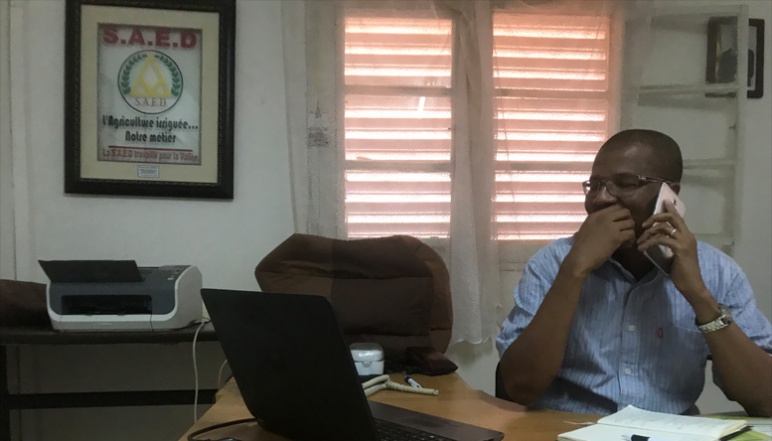
An ingéneur délégué, the person responsible for running each branch office of the state agricultural management organization in the north (SAED). Behind him on the wall, you can see the framed poster that says: “SAED: irrigated agriculture…our profession.” Photo credit: Graves, Sanyal research team
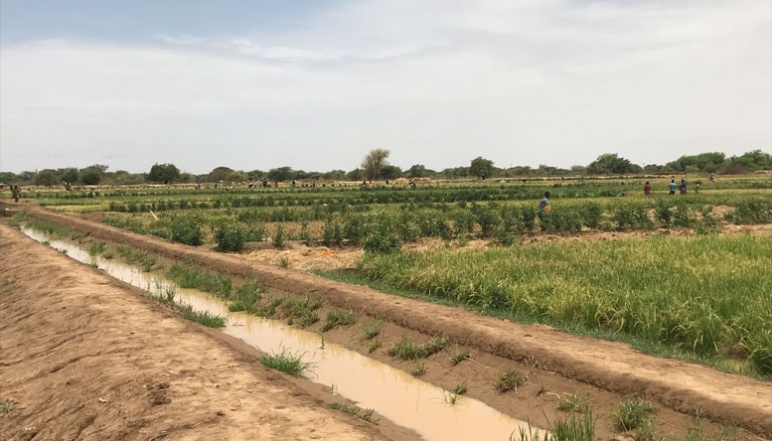
Farmers harvesting their rice in northern Senegal. In the foreground, you can see the irrigation canal that brings water to their fields, as well as the desert conditions that surround this shock of green rice fields. Photo credit: Graves, Sanyal research team
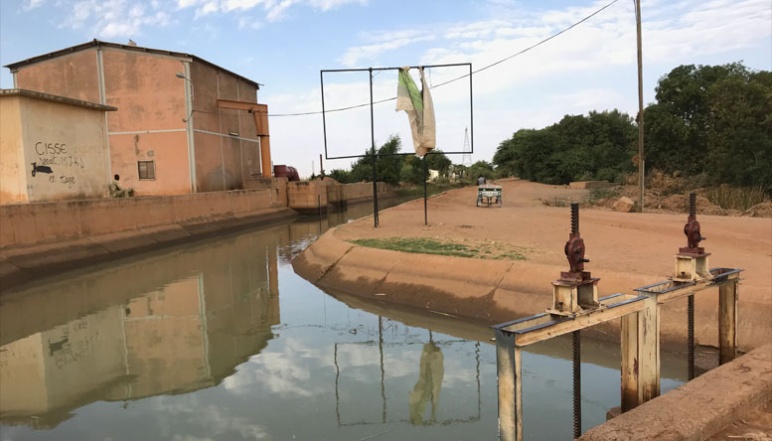
An irrigation canal in Dagana, northern Senegal. The canal is managed by the state irrigation management organization, SAED, in partnership with the local farmers’ association. Photo credit: Graves, Sanyal research team
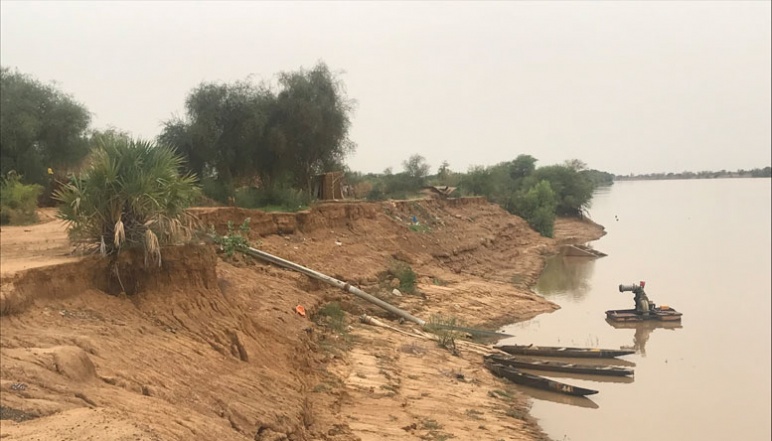
A floating pump in the Senegal River provides irrigation for a small village near Matam, northern Senegal. This is one of several similar pumps dotting the landscape in this area. Photo credit: Graves, Sanyal research team
Principal Investigators
Stephen Graves
- Abraham J. Siegel Professor of Management Science
- Professor of Operations Management
- Sloan School of Management
Bishwapriya Sanyal
- Ford International Professor of Urban Development and Planning
- Director of the Special Program in Urban and Regional Studies (SPURS)
- Director of Humphrey Fellows Program
- Department of Urban Studies and Planning
Challenge:
How can irrigation equipment be made more accessible and useful to farmers in drought-prone regions of the Sahel?
Research Strategy
- Apply concepts from planning and operations management to illustrate the policy and market forces that bring irrigation to the farmer’s point-of-purchase
- Analyze survey data to demonstrate how risk emerges in irrigation distribution and use
Project description
Throughout the developing world, the dissemination of irrigation equipment can help farmers mitigate a principle risk of agricultural production: variable rainfall. This risk affects farmers’ food securities, livelihoods, and cropping choices. However, the system of irrigation equipment distribution and use brings about its own risks, both for the farmers that use the equipment and for the shops that distribute it. How these risks are arranged across shops and farmers is a major policy concern. Some arrangements of risk may disadvantage more rural shops and poorer farmers. This study brings together a multidisciplinary faculty and student research team from across MIT to examine under what conditions supply chains and extension services shape risks faced by shops and farmers , using a case study of the Senegalese irrigation sector. This study uses surveys of firms, government officials, voluntary associations, and farmers to characterize the risks inherent to sales, use, and repairs. We pay particular attention to the spatial patterns of risk, and the degree to which those patterns reflect where sales, use, and repairs are located. Irrigation access and availability lies at the center of Senegal’s food security and economic policies. These policies aim to achieve self-sufficiency in irrigated rice production and increases in vegetable production. Like in other countries, these policies rely on private supply chains and large public-private schemes, reflecting reforms in the 1980s that shifted the distribution and management of agricultural equipment to the private sector and pared down the capacity of the public sector to intervene in agricultural markets.
Outcomes
- Surveyed over 100 farmers in Senegal involved with irrigated rice and vegetable production and over 60 firms that sell or repair irrigation products, plus gathered data on 260 small firms related to irrigation to investigate risks and inventory practices
- Identified the extent to which the irrigation equipment chain reaches far rural areas, documented the risks that smaller sellers of irrigation face and their strategies to manage risks, and proposed policy interventions that may help mitigate risk
- Discovered the spatial gaps in coverage in irrigation product and repair vendors, modeled the network to identify where the placement of new firms may improve farmers access to local vendors, and evaluated how this placement may vary by trying to prioritize local access to vendors for drought-prone or poor farmers
News
Additional Details
Impact Areas
- Food
Research Themes
- Water Resources & Infrastructure
- Sustainability & Adaptation
- Economics, Policy, & Practices
- Modeling & Data Analytics
- Equity & Access
Year Funded
- 2017
Grant Type
- Seed Grant
Status
- Completed


